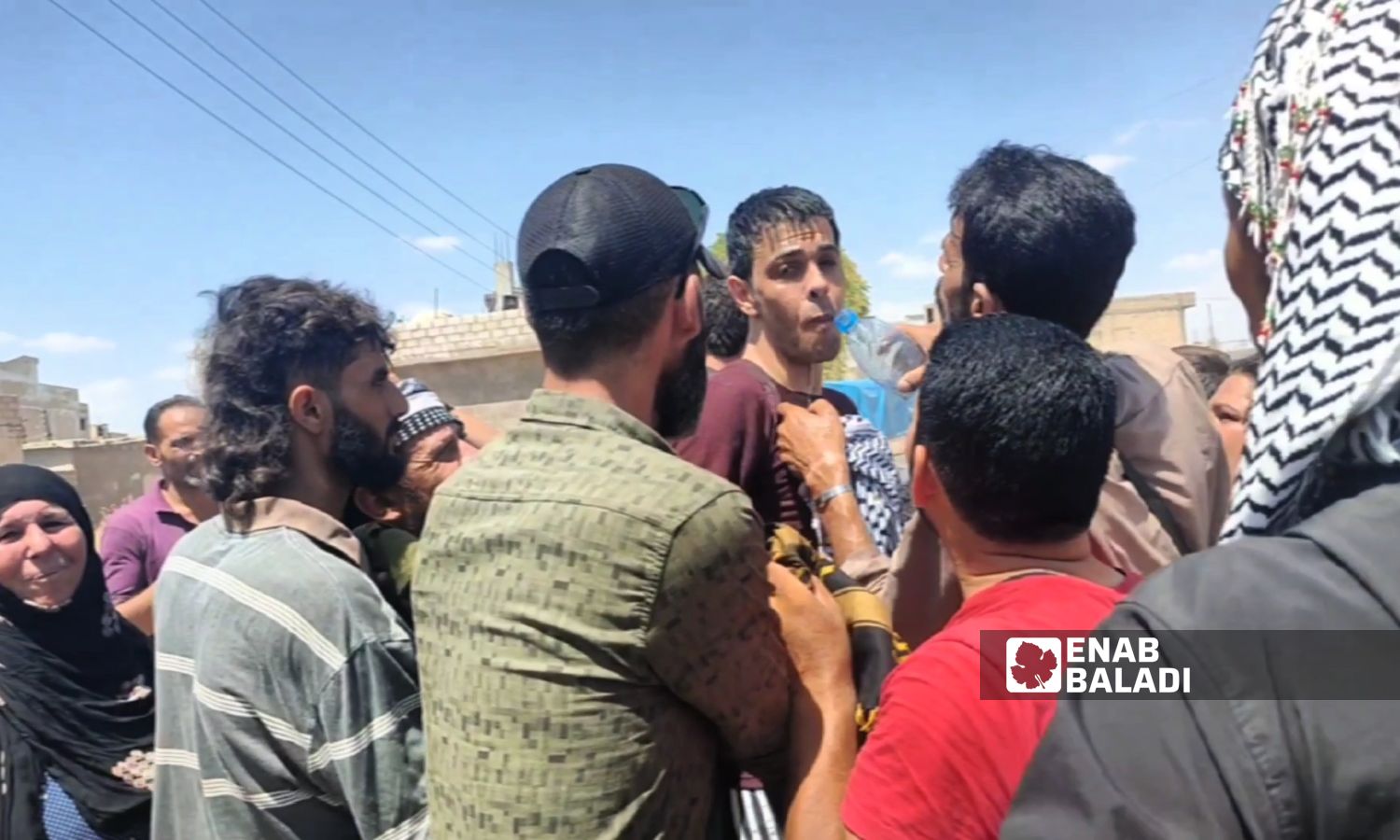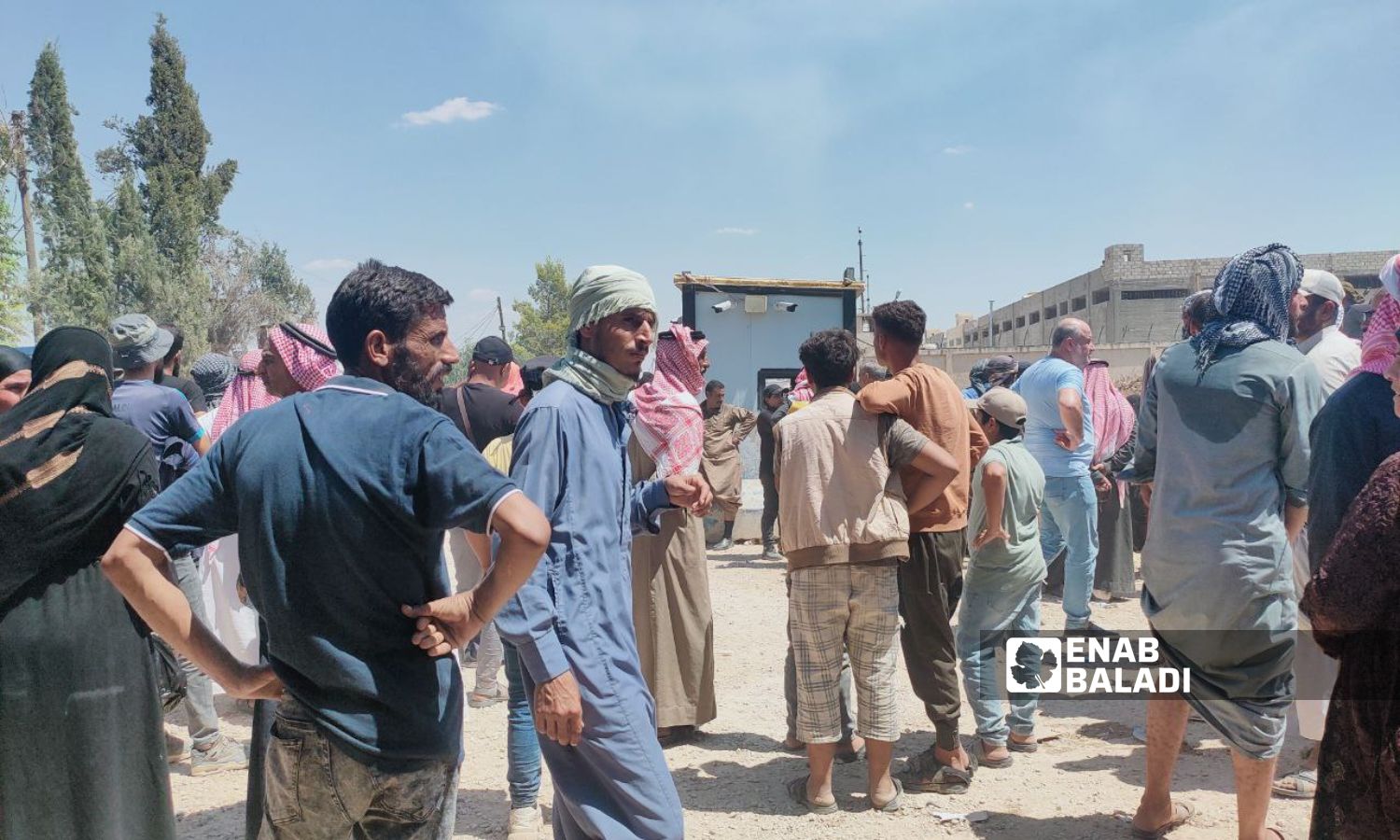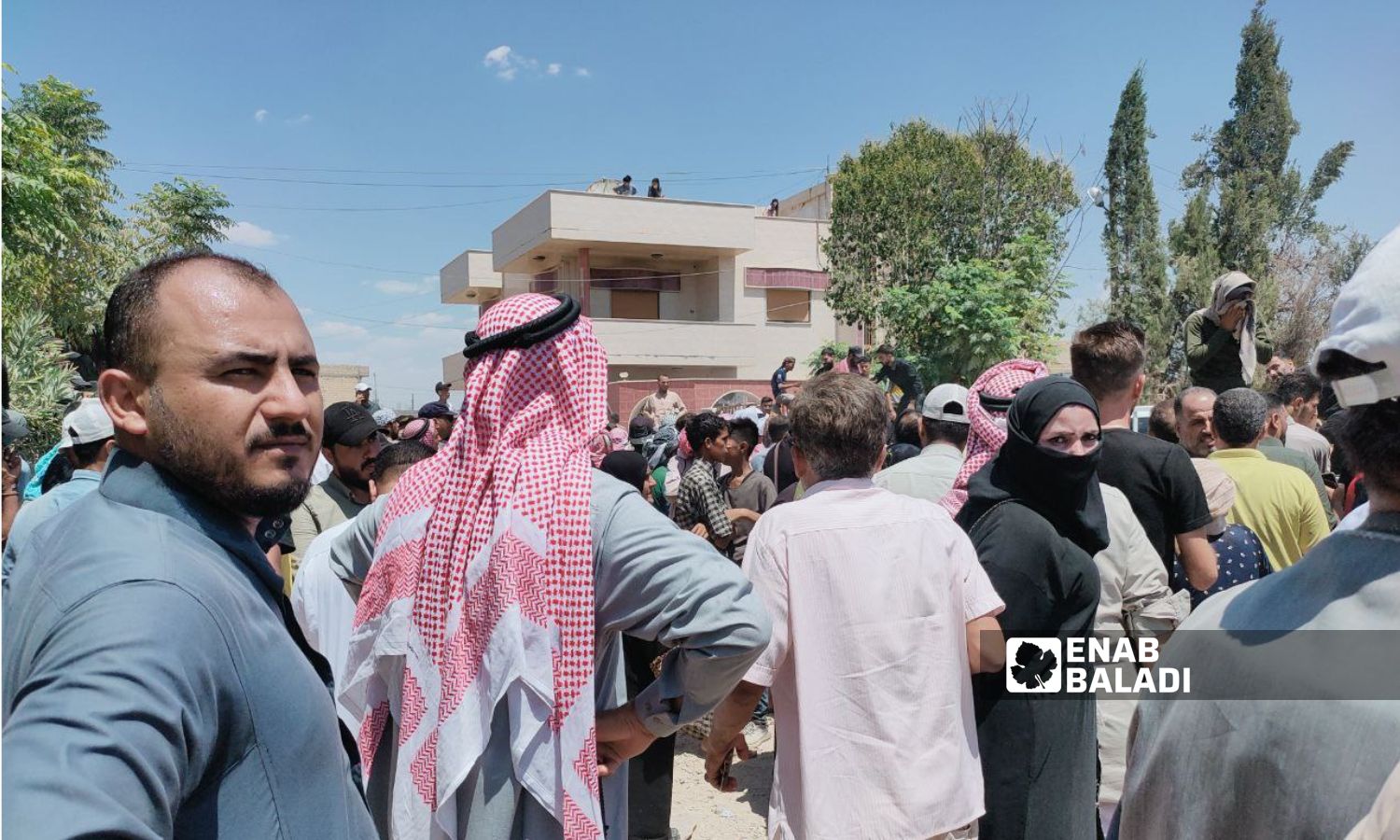



The Autonomous Administration of North and East Syria (AANES) announced that it has released the second batch of prisoners from “rehabilitation centers” in Raqqa province, under the amnesty decision issued last week.
Through its official channels, on the evening of Monday, July 22nd, it published a video showing a group of prisoners who were released in Raqqa province, in the presence of a delegation from the Autonomous Administration.
This batch is considered the second, after announcing on Sunday evening, the release of dozens in al-Hasakah province.
Enab Baladi‘s correspondent in al-Hasakah noted that dozens of civilians of various ages gathered, waiting for their released relatives from Alaya Prison in al-Hasakah province, after a similar gathering was observed at Ghweran Prison in al-Hasakah as well.

Civilians near Alaya Prison in al-Hasakah waiting for their released relatives under the amnesty law – July 22, 2024 (Enab Baladi/Majd al-Salem)
Hamdan al-Abd, Deputy Co-Presidency of the Executive Council in the Autonomous Administration, stated that the released detainees are those whose hands were not stained with the blood of innocents, in accordance with Amnesty Law “No. 10.”
According to the same law, the amnesty includes only “Syrians who committed terrorist crimes” against the security of the Autonomous Administration and the Syrian Democratic Forces (SDF), as stated in the Penal Code and Anti-Terrorism Law (2021), with some exceptions including “princes and leaders in terrorist organizations, crimes that resulted in the death of a human, and espionage.”
AANES did not announce the number of released prisoners, while the Syrian Network for Human Rights (SNHR) documented that at least 5,232 individuals remain detained or forcibly disappeared by the SDF, among them 534 adult females and 838 children (statistics until the current month of July).

Civilians near Alaya Prison in al-Hasakah waiting for their released relatives under the amnesty law – July 22, 2024 (Enab Baladi/Majd al-Salem)
On July 17th, the Peoples’ Democratic Council in the Autonomous Administration issued an amnesty for a number of crimes, approximately two months after promises were made to tribes regarding the detainees’ issue.
Law “No. 10” included an amnesty for crimes committed by Syrians before its issuance date, as stipulated in the Anti-Terrorism Law No. “7” of 2021 and its amendments, in addition to crimes against the security of the Autonomous Administration as stated in the General Penal Code (No. 2) of 2023.
The announced amnesty in the current month of July is the second of its kind within a year. Previously, AANES issued a “general amnesty” for detainees in its areas of control on the occasion of Eid al-Fitr, on April 6th, which included crimes committed before its issuance date, offenses, misdemeanors, and felonies.
The law excluded “terrorism” crimes, crimes directed against the essential interests of the Autonomous Administration, crimes related to public funds, rape, acts contrary to decency, and sexual assault on minors.
It also excluded drug trafficking and promotion crimes, human organ trafficking crimes, and convicts who are at large and fugitives from justice.
On May 16th, the SDF leader, Mazloum Abdi, made promises to tribal elders and sheikhs from northeastern Syria to review demands they raised during a meeting between the two sides.
The meeting with tribal elders and the SDF leader, who politically aligns with the Autonomous Administration, focused on the detainees’ file in SDF prisons, as well as on issues related to combating corruption and drugs.
At that time, Abdi said that official meetings would be held with the Internal Security Forces (Asayish) and other relevant institutions to seriously review and address the demands.
if you think the article contain wrong information or you have additional details Send Correction